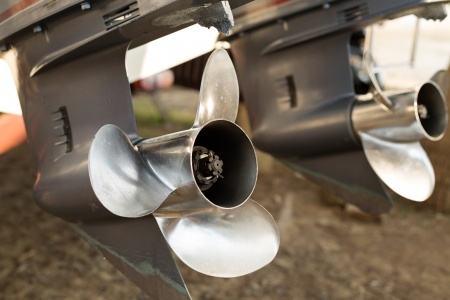Boat Propellers Continue to Cause Accidents
March 2, 2016 | Category: Boating Accidents | ShareThe U.S. Coast Guard Recreational Boating Safety Reports show there are approximately 265 accidents where the victim was struck by a motor boat or propeller, of which 28 to 47 of these accidents result in death on an annual basis in the U.S.
Already in February 2016, there was at least one boating accident reported in Bradenton, Florida. This report said that two Boy Scouts helped save a young boy who suffered injuries from a boating accident. Caleb Savage, 21, assistant scout master for Troop 77, and Nathan Sisk, 17, of Troop 100, were working the 2016 Camporee for Scouts in the nearby area when Savage said they got reports of someone hurt in the river after a 122-foot vessel on the upper Manatee River had struck a submerged object. They came across a bystander on a small beach with a young boy in his arms. According to Caleb Savage, the bystander pulled the boy from the water. Savage said, “We  suspect his chest had hit the end of the propeller. His breathing was non-productive…we barely had a pulse and his heart rate was irregular.”
suspect his chest had hit the end of the propeller. His breathing was non-productive…we barely had a pulse and his heart rate was irregular.”
The U.S. Coast Guard cites the main reasons for people dying or being injured in boating accidents are excessive speed, no use of life jackets, machinery failure, and alcohol use. Pleasure boat accidents sometimes occur because the boat hits a wave, another boat’s wake, or a submerged object.
Hitting submerged objects can happen even when visibility is not impaired by bad weather. The use of GPS devices/nautical charts may, according to the U.S. Coast Guard, help prevent these accidents.
How to guard against propeller accidents while boating?
BoatSafe.com says:
- Make sure everyone is seated safely inside the boat. Many guests do not know a boat can bounce or lurch suddenly. Never allow passengers to ride on the bow, gunwales, or transom.
- Slow down when you encounter a large wake. To minimize the impact, cross the wake at an angle, not straight on.
- Avoid letting anyone aboard drink heavily, especially when the boat is underway. According to the claim files, alcohol was a factor with many prop injuries.
- Wear your engine cutoff switch lanyard. Note that it may be necessary to shorten the lanyard when the operator is seated near the engine and smaller outboards with tiller steering.
- Stay at least 100 feet away from diver-down flags in rivers, inlets, and navigation channels. Many divers have been killed or seriously injured by props. Turn away from diver-down areas; do not try to idle by. Be aware that divers have difficulty gauging distance underwater and will often stray more than the legal distances from the flag. Current can also cause divers to be swept away from the flag.
- Do not let anyone onto the swim platform while the engine is in gear. Swim platforms are slippery and people have fallen into the prop; this is especially likely to happen when the boat is coming into a dock and the boat bounces off a piling.
- When launching or un-grounding a boat, keep people in the water away from the stern and prop.
There are a variety of safety devices available to help prevent propeller strikes according to Pennsylvania’s BoatEd.com:
- Wireless cut-off switches: A lanyard connects the safety switch to the operator's wrist or PFD. When the lanyard is pulled from the switch, the engine shuts off.
- Guards: Devices that provide some type of physical barrier around the propeller. These include deflection devices, full cages, ring guards, ringed props, and "Kort Nozzles."
- Propulsion alternatives: Devices other than a propeller such as jet drives and pump jets.
- Interlocks: Devices that automatically turn off the engine or sound an alarm. For example, a ladder interlock stops the engine or triggers an alarm when passengers use the ladder to enter or leave the water.
- Sensors: Wireless sensors worn by boaters that shut off the boat's engine or trigger an alarm if the wearer falls overboard.
“Boating is a fun activity for friends and family. However, it may also be dangerous if the proper safety measures are not taken or the equipment is not in proper working order. Should you be involved in a boating accident because of the negligence of another, please contact our team of boating accident specialists at Spivey Law Firm, Personal Injury Attorneys, P.A.,” said Attorney Randall Spivey.
Naples Boating Accident Attorney, Randall L. Spivey is a Board Certified Trial Attorney – the highest recognition for competence bestowed by the Florida Bar and a distinction earned by just one (1%) percent of Florida attorneys. He has handled over 2,000 personal injury and wrongful death cases throughout Florida. For a free and confidential consultation to discuss your legal rights, contact the Spivey Law Firm, Personal Injury Attorneys, P.A., in Lee County at 239.337.7483 or toll free at 1.888.477.4839,or by email to Randall@SpiveyLaw.com. Visit SpiveyLaw.com for more information. You can contact Spivey Law Firm, Personal Injury Attorneys, P.A.in Charlotte County at 941.764.7748 and in Collier County 239.793.7748.

